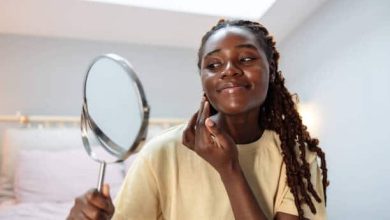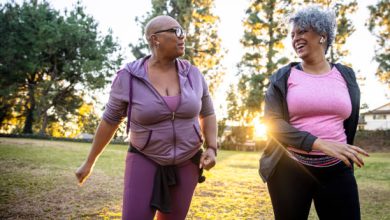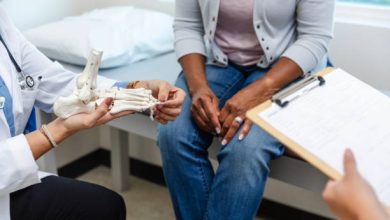Actress Marsai Martin Diagnosed with Ovarian Cysts: “Pain is Not Normal” – BlackDoctor.org


We’ve seen actress Marsai Martin has literally grow up on screen right before our eyes. From her sassy, intelligent role on the hit show “Black-ish” to her boss moves when she, at age 13, became an executive producer of her film, making her the youngest person to ever produce a movie, as well as the youngest African-American producer.
But just like every other child star, as we get older, our bodies start to change. Martin tried to hide it, but the pain she felt, she knew it wasn’t normal and something wasn’t right.
It all started when she began experiencing a lot of pain with her periods. She was diagnosed with an ovarian cyst at 14, which she didn’t publicly disclose until four years later in 2022. Seeking out the diagnosis in the first place, she says, took a lot of courage.
“I was so nervous about even knowing what was going on with my body,” she says, reflecting on her younger self. “I was in a space where I didn’t know if I wanted to know that information because of conversations that I had in the past.”
She was made aware that reproductive health was a “sensitive topic for a lot of people but especially for Black women,” she says. Data shows that women of color face higher maternal mortality rates and a higher risk of dying from cervical cancer than white women. This reality made it difficult for her to want to address her own experience, out of fear of what it might mean.
“These conversations should be nothing to be ashamed of, and it shouldn’t hold you back from getting the information and the details that you need to move forward with your body,” she says in hindsight. “Pain is not normal, you know. And that’s something that I thought was normal for such a long time.”
According to her interview with Yahoo.com, it took her four years to agree to get the necessary surgery to remove the cyst and ultimately relieve the pain. That time “shaped me in a lot of ways,” she says.

There was “ongoing pain” that she experienced with her monthly period, on top of nervousness she encountered leading up to the surgery. “The anxiety was so overwhelming,” says Martin — who was actually wrapping up a hit television series, filming movies and trying to experience normal teenage life at the time. “It was a bunch of things to navigate.”
What she took away from the experience once the surgery was complete was that there was nothing to be afraid of. More important, she was taught to “speak up and use my voice” when it comes to conversations about her own body.
“You learn so much about your body the more you grow up. But this is a time where there’s a lot of hormonal changes to where you are just trying to understand and navigate what your body is telling you,” she says. “Most of the time, it will tell you what you need to do. It’s just a really big learning curve in my life at the moment, especially while growing into like a full-blown adult.”
Black women are disproportionately affected by ovarian cysts or polycystic ovary syndrome (PCOS). According to the National Institute of Health (NIH), approximately 5 million women of reproductive age in the United States are affected by this syndrome. And a study from the National Library of Medicine found that Black women with PCOS have an increased risk of metabolic syndrome and cardiovascular disease than white women.
What Is PCOS?
Unlike cystic fibroids, PCOS is caused by an imbalance of reproductive hormones, causing immature follicles to surround the ovary. It’s the leading cause of infertility. PCOS can also cause miscarriage, gestational diabetes, and preeclampsia.
Symptoms include:




